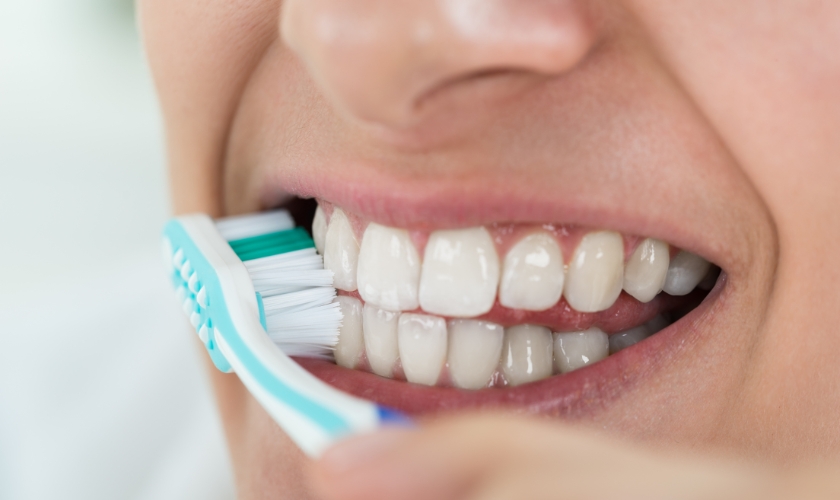New Patients Welcome!

The enamel and dentin of the teeth are made up of minerals such as calcium and phosphate. As a result, cavities are prevented and tooth decay is prevented. Minerals are lost from the teeth as we age. A sugary and acidic diet could cause this condition. You may also experience it when you have an accumulation of bacteria in your mouth. A missing enamel or bone cannot be replaced without replacing the entire tooth. The good news is that lifestyle changes and home remedies can help replenish these minerals before tooth decay occurs. Remineralization is the process of restoring minerals to the body. The process of demineralization can also be slowed down.
For help remineralizing your teeth and preventing demineralization, discuss the following treatment options with your dentist, dentist ventura. The processes of demineralization and remineralization are interconnected and constantly changing.
1. TEETH SHOULD BE BRUSHED
It is essential to brush your teeth regularly to remove bacteria. Streptococcus mutans bacteria accumulate in your mouth and cause cavities (dental caries).
The bacteria can be transmitted to humans via food and drink, according to a 2016 study. The bacteria that cause mineral loss and cavities can be removed by regularly brushing your teeth.
2. PUT FLUORIDE TOOTHPASTE TO USE
Demineralization cannot be prevented by just any toothpaste.
There is a recommendation for fluoride toothpaste from the American Dental Association (ADA). Toothpaste that doesn’t contain fluoride will not be awarded the ADA Seal of Acceptance.
Your teeth may be more resistant to future mineral loss by using fluoride toothpaste that prevents tooth decay and strengthens them.
3. REMOVE SUGAR FROM YOUR DIET
It is likely that you have had a warning from your dentist in the past about sugar, and with good reason. It is a well-known fact that sugar has high acidity and interacts with bacteria in the mouth by causing them to break down tooth enamel.
It is also worth mentioning that a study Source found a greater effect of demineralization associated with a high frequency of sugar consumption than it was associated with an amount.
In other words, eating small quantities of sugary foods on a regular basis can be more harmful than eating sugary desserts occasionally.
4. TAKE SUGARLESS GUM WITH YOU
Studies suggest that sugarless gum can actually promote tooth remineralization, despite decades of debate about its role in oral health.
In an older study Source, sugar-free gum causes your salivary glands to produce more saliva while removing sugar, plaque, and carbs from your teeth.
In addition to blocking mineral loss, the gum may also act as a barrier. According to current research, xylitol and sorbitol stand out among sugar-free ingredients as the most promising candidates. Sugarless gum is remineralizing, so chewing it after a meal or in between meals is a good way to reap the benefits.
5. LIMIT YOUR INTAKE OF FRUIT JUICES AND FRUIT FRUITS
It is important to note, however, that fruit can be highly acidic, contributing to a healthy diet. Citrus fruits like grapefruit and oranges, in particular, are some of the worst offenders.

Calcium chelation occurs on tooth enamel when fruit acids are present. Calcium is stripped away by the acids because they bind to calcium and bind with it. The situation is even worse when it comes to fruit juices, as they are highly acidic and often contain sugars as well.
As a rule of thumb, you should avoid juices and eat acidic fruits only on occasion and avoid juices as much as possible.
6. VITAMINS AND CALCIUM ARE IMPORTANT
Over time, acid and bacteria strip calcium from the teeth, which is an important mineral. Calcium is produced within the teeth naturally. The consumption of calcium-rich foods can help you replace lost calcium. Calcium-rich cheese, for instance, may counteract the negative effects of sugar consumption, according to a 2003 study.
Your doctor may recommend calcium supplements if you consume a diet deficient in calcium.
In an article published in 2012, researchers said that taking vitamin D supplements could protect people from getting cavities. Take vitamin D supplements as recommended by your physician or dentist.
Also, discuss daily multivitamins with your dentist to ensure you’re getting all the vitamins you need.
7. PROBIOTICS MAY BE BENEFICIAL
It is important to choose probiotic strains produced naturally in the mouth when considering the use of probiotics for remineralization. Using this method, you replace the beneficial bacteria without introducing potentially harmful strains.
Oral health and remineralization may benefit from probiotics such as:
- Bifidobacteria
- It’s Reuters
- rhamnosus
- Salivarian
Probiotic supplements are available as well as certain yogurt brands that contain probiotics. The best results will come from taking these daily.
8. MAKE SURE YOUR MOUTH IS MOIST
There is not enough saliva produced when you have a dry mouth. Your saliva protects your teeth from cavities as well as helps keep your mouth feeling comfortable.
Saliva plays a crucial role in remineralization, according to a 2016 research Source. Calcium and phosphate are also found in saliva, which prevents dry mouth.
You can increase saliva activity by chewing gums or using mouth rinses if you have a dry mouth.
9. CONSUME FEWER STARCHY FOODS
Simple carbohydrates can be found in starchy foods such as potatoes, rice, and bread. As a result, you can develop bad breath, tooth decay, and erosion of your teeth due to the fermentation of sugar in your mouth.
Nonetheless, eating starchy foods combined with sugar can lead to tooth decay, according to a 2003 study Source. It is not beneficial for the teeth to consume sweetened rice, but it is beneficial to eat plain rice.
10. INCREASE YOUR WATER INTAKE
Medical professionals, nutritionists, and dentists all recommend water as their preferred beverage. In addition to being naturally sugar-free, it reduces the body’s exposure to harmful elements.
If you don’t have a toothbrush on hand, you can rinse your mouth out with water to reduce demineralization. When you have eaten acidic or sugary food, this technique can be particularly beneficial.
You shouldn’t completely avoid coffee or tea, but they don’t remineralize your teeth. It should also be noted that these substances have a tendency to be acidic (particularly coffee). The addition of sugar to these drinks can make them even worse in terms of their effects on the oral health of the consumer.
It is also important to limit sodas since they contain acid and sugar.
IN A NUTSHELL
Almost every day, teeth are exposed to a variety of elements, which results in a mineral loss. There are many things that wear and tear your teeth, from food and drinks to saliva and bacteria. Too much demineralization can wear down your teeth, even though they are designed to handle these elements.
Regularly visiting your dentist will help keep your teeth healthy by remineralizing them and preventing demineralization.





